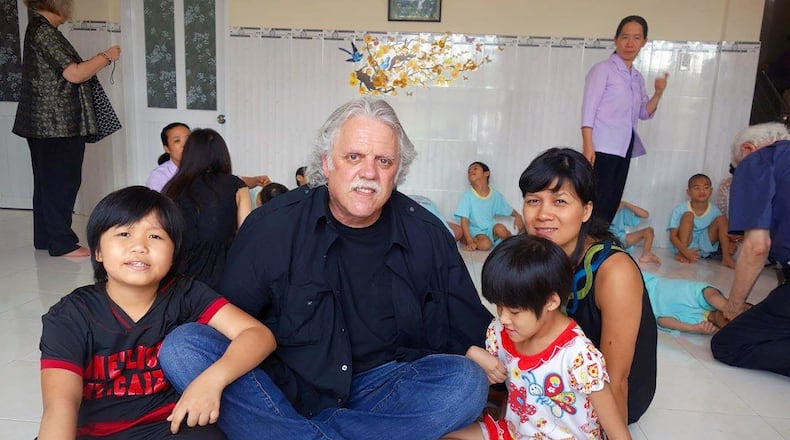And when the war ended in 1975, some 500,000 veterans suffered from post-traumatic stress disorder (PTSD), higher rates of divorce, suicide, alcoholism and drug addiction, and, Terzano discovered, received little help from the government who had sent them to war.
“In 1978 I moved to Washington, D.C., to finish up college,” Terzano said. “About a month after I got there I read an article about a Vietnam vet from New York working on lobbying Congress for more programs to help veterans.”
Terzano ended up connecting with this man, and together they started a membership organization that eventually became the Vietnam Veterans of America Foundation.
“We discovered that the type of support and programs that should have been available to veterans wasn’t,” Terzano said. “The VA (Veterans Administration) was in shambles and was ill prepared to deal with the types of catastrophic injuries coming home from the war. PTSD wasn’t recognized, and there was no support for Agent Orange (chemical warfare) injuries. And the GI Bill was a disgrace.”
Terzano worked with a small group of veterans to organize and soon became the only chartered Vietnam Veterans organization in the nation. And since Agent Orange had adversely affected so many men in the war, the group started talking about returning to the place where it happened in order to collect information.
“In 1981, there was no relationship between the U.S. and Vietnam at all,” Terzano said. “There was a trade embargo in place.”
The group worked through a British filmmaker and eventually met with a Vietnamese ambassador to explain they wanted to return to Vietnam on a mission of peace and reconciliation.
“We didn’t hear anything for months,” Terzano said. “Then in December of 1981, we got word that our visas had been approved and that we’d be in Hanoi by Dec. 16th.”
Terzano said that began a wild adventure as they tried to work out support and funding for the four veterans who would be returning to Vietnam.
“We were not prepared for the effect this would have on us in terms of going back there,” he said.
The group quickly realized that though the U.S. lost 58,000 people to the war in Vietnam, the Vietnamese losses were staggering, with more than 2 million killed, a majority of which were civilians.
“Traveling back to this country and sitting down with the same people who, a few years before, you would have been given a medal for killing was mind boggling,” Terzano said. “But we soon realized that there were much more similarities than differences between us.”
The group was touched by how welcoming the Vietnamese people were, especially at a time they were commemorating the ninth anniversary of the Christmas bombing of Hanoi, the most massive campaign ever undertaken at that time.
“We were walking around and you could see all the ruins of the buildings,” Terzano said. “People came up to us and asked if we were American veterans and they welcomed us to Vietnam. That taught us that they couldn’t languish away in the war. They had to move on.”
RELATED: Dayton museum tells story of military history
That first visit to Vietnam is what got the group started in humanitarian work that would eventually be recognized with a Nobel Peace Prize in 1997.
“We started sending one to two groups a year early on,” Terzano said. “For a lot of veterans, our images of Vietnam were frozen images of war, and that’s all we remember. But that’s not all that’s there. It’s a country of people that have their own hopes and dreams. Any place you go to war, it’s about a people – a citizenry.”
After beginning humanitarian projects with the Vietnamese, Terzano’s group eventually turned them over to the Vietnamese people so that today they are self-sufficient.
“When I look back on the things I’ve been able to work on in my life and what has driven me,” Terzano said, “it’s not only going off to war, but having the courage and fortitude to take on an issue and to ultimately see justice done in the process. “
And today, as he works with a future generation of justice advocates at the University of Dayton, he teaches them that treating people with dignity and respect and coming together for the overall good of society is paramount.
“It’s seeing the passion in the younger generation and their willingness to work together, regardless of their political leanings, to achieve justice,” Terzano said. “It’s never an easy process, but you find common areas first where there is agreement and build from that.”
About the Author

